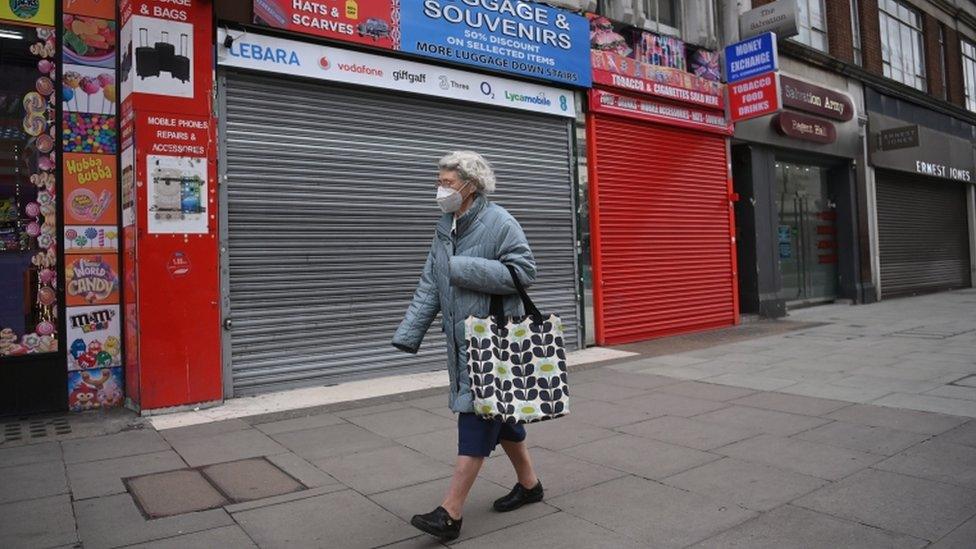Covid-19: Christmas get-together plan backed by UK nations
- Published
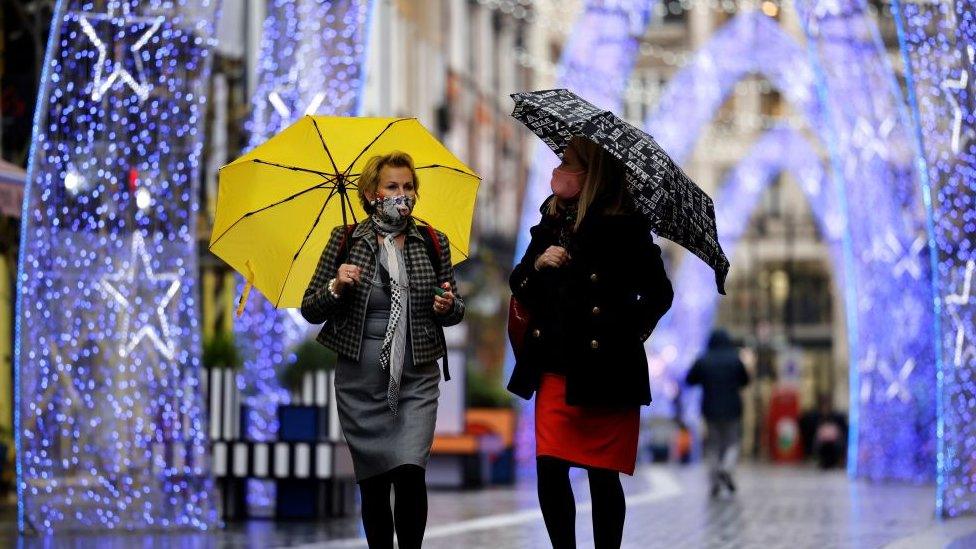
The UK's four nations have backed plans to allow some household mixing "for a small number of days" over Christmas.
Prime Minister Boris Johnson is due to unveil on Monday a tougher three-tiered system for England - to be introduced at the end of the current lockdown on 2 December.
The 10pm closing time for pubs and restaurants will also be relaxed.
Work to finalise the arrangements for a UK-wide approach to restrictions this Christmas is ongoing.
One option that was discussed in meetings this weekend was that three households could be allowed to meet up for up to five days, according to the BBC's deputy political editor Vicki Young.
Mr Johnson will detail the strengthened tiered system in a statement to the House of Commons on Monday, and every region of England will be told on Thursday which tier they will be put into after the lockdown ends.
Gyms and non-essential retail are expected to be allowed to re-open in all areas under the new plans.
Last orders in pubs and restaurants will remain at 10pm, but customers will have an extra hour to drink up.
The PM had also been hoping to announce arrangements for the Christmas period on Monday, but this has been delayed until at least Tuesday to allow the Scottish and Welsh cabinets to agree the plans.
The Cabinet Office said ministers from England, Scotland, Wales and Northern Ireland had endorsed a "shared objective of facilitating some limited additional household bubbling for a small number of days".
But they have emphasised that the public will be advised to "remain cautious", and that "wherever possible people should avoid travelling and minimise social contact".
Discussions are continuing - including about travel arrangements - but it is hoped agreement on the joint approach can be reached this week. The Scottish government said "no agreement has been reached".
In respect of Northern Ireland, ministers have also "recognised that people will want to see family and friends across the island of Ireland, and this is the subject of discussions with the Irish government", the Cabinet Office said.

English tier system - at a glance
Pre-lockdown, there were three tiers of restrictions - medium, high, and very high:
Medium / Tier 1: Rule of six if meeting indoors or outdoors; pubs and restaurants shut at 10pm
High / Tier 2: No household mixing indoors; rule of six applies outdoors; pubs and restaurants shut at 10pm
Very high / Tier 3: No household mixing indoors or in some outdoor spaces; pubs and bars not serving meals are closed

More areas are set to be placed into the higher tiers in England after lockdown.
Some local measures will be the same as those in the previous three-tier system - which was in place in England until the current lockdown began - but some tiers will be strengthened, according to Downing Street.
Mr Johnson met with his Cabinet to sign off on the plans on Sunday.
There have been calls by a cross-party group of MPs and peers, external for the PM to guarantee that church services will go ahead this Christmas, as current lockdown restrictions forbid most religious services.
Meanwhile, the government's Scientific Advisory Group for Emergencies (Sage) is expected to publish research on Monday saying the previous tiered restrictions in England were not strong enough.
But 70 Tory MPs have said they will not back the proposals without evidence.
In a letter to the prime minister, the recently-formed Covid Recovery Group (CRG) said it cannot support a tiered approach unless it sees evidence measures "will save more lives than they cost".
MPs are expected to vote on the new tier system in the days before it comes into force.


Government ministers and advisers have been hinting about new tougher tiers over the past week.
Before lockdown there was some evidence that tiers two and three were having an impact, but not tier one.
Crucially, both the top two tiers involved banning mixing inside homes, so one option being discussed behind the scenes is introducing a ban across all the tiers until winter is over.
The exception will, of course, be Christmas.
That is a move that divides opinion. But the government sees it as a necessity, believing significant numbers of people will ignore any attempt to ban gatherings over the festive period.
It is also a recognition the public needs a break from the long hard slog of the pandemic.
Infection rates will of course rise, but that will be offset to some extent by a wider boost to wellbeing.


THE R NUMBER: What it means and why it matters
LOOK-UP TOOL: How many cases in your area?
SOCIAL DISTANCING: Can I give my friends a hug?

Labour has so far supported the need for restrictions to slow the spread of Covid-19, making a Commons defeat on the plan unlikely.
But shadow chancellor Anneliese Dodds told the BBC her party wanted clarity from the government over how tiers would be decided and the support available for businesses.
On Sunday, the UK recorded another 18,662 new coronavirus cases and 398 deaths within 28 days of a positive test, bringing the UK total to 55,024.
Of the figures, the government said: "Due to a processing update, 141 previously published deaths within 28 days in England were excluded from the published data on November 21.
"This issue has now been corrected for data published on November 22, which includes deaths omitted yesterday in today's total and daily number of newly reported deaths."
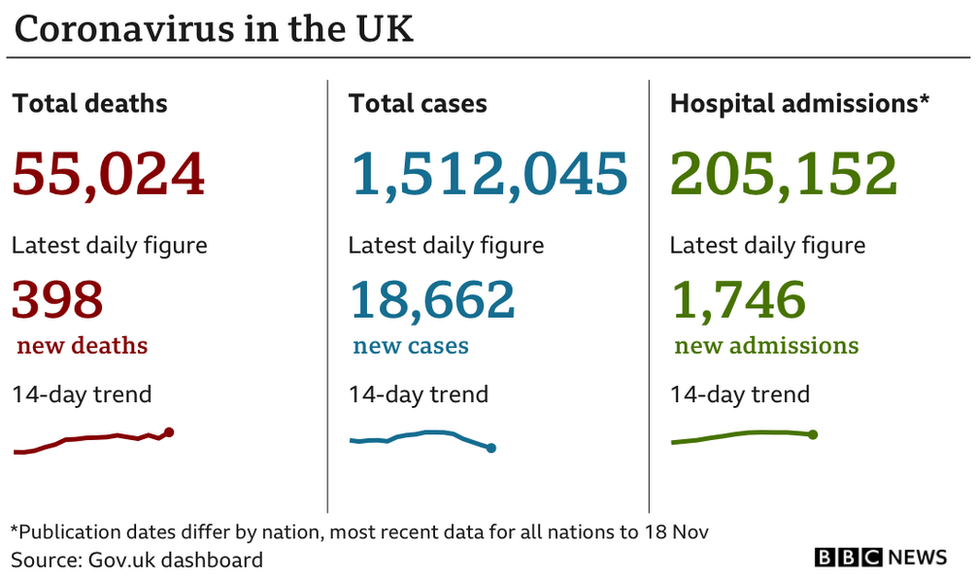


A NEW SERIES OF 'GROUNDED' IS COMING: Covid-19 hasn’t gone away and, due to travel restrictions, neither has Louis Theroux...
RADIO 1'S WORKOUT PLAYLIST: An hour of up-beat, fast-paced tunes to soundtrack your weekend workout

- Published14 December 2020
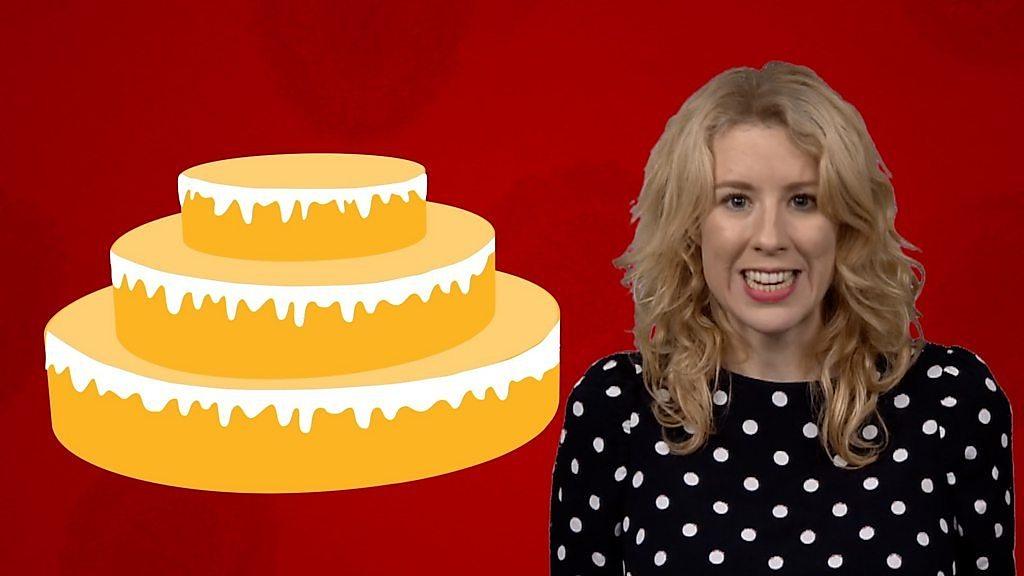
- Published17 November 2020
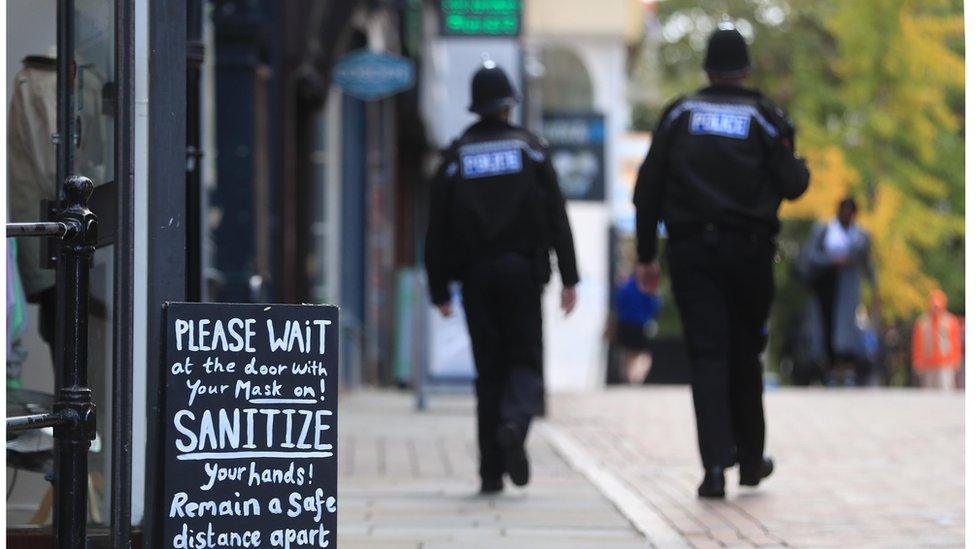
- Published16 November 2020
